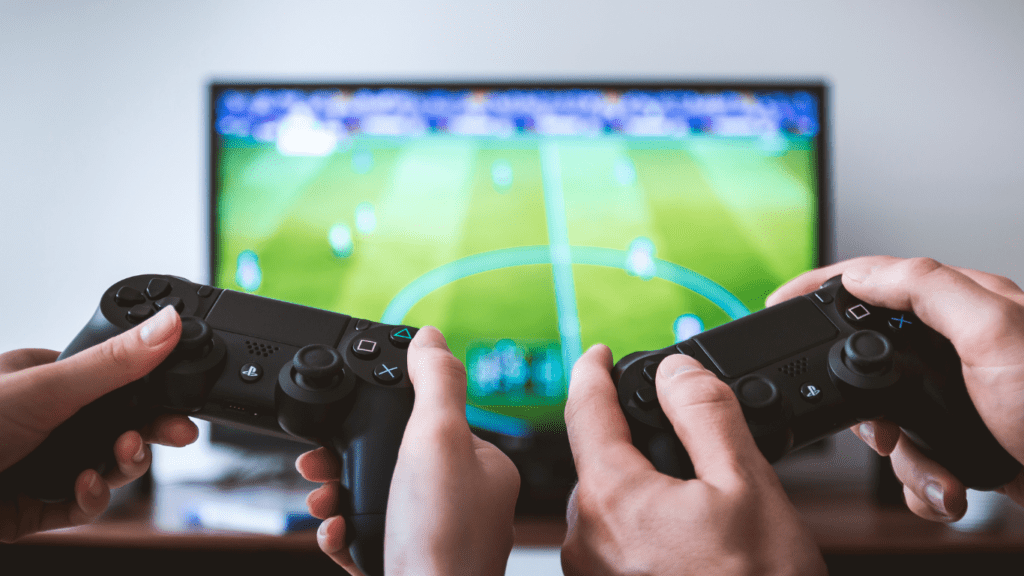In today’s digital age, video games have transcended entertainment to become powerful tools in rehabilitation and treatment. As a passionate gamer, I’ve witnessed firsthand the transformative impact of gaming therapy on individuals undergoing physical and mental health challenges. From improving motor skills to enhancing cognitive functions, video games are revolutionizing traditional therapy approaches.
Through immersive virtual environments and interactive gameplay, video games offer a dynamic platform for patients to engage in therapeutic activities while having fun. As I delve deeper into the world of gaming therapy, I uncover the innovative ways in which technology is being leveraged to aid in recovery and promote overall well-being. Join me on this exploration of how video games are reshaping the landscape of rehabilitation and treatment, one virtual level at a time.
Understanding Gaming Therapy
As a fervent believer in the transformative power of video games, I delve into how these digital experiences have transcended mere entertainment to become essential tools in rehabilitation and treatment. Gaming therapy, a cutting-edge approach, harnesses the immersive nature of games to facilitate recovery and enhance well-being.
- The Concept of Gaming Therapy
I explore the innovative concept of gaming therapy, where video games serve as therapeutic instruments to aid individuals in their rehabilitation journey. By integrating game mechanics with structured activities, this approach engages patients in enjoyable yet purposeful tasks that contribute to physical and mental health improvements. - Research Supporting Gaming Therapy
Delving into the realm of scientific inquiry, numerous studies validate the efficacy of gaming therapy in promoting recovery and functional outcomes. Research indicates that engaging with tailored video games can boost motor skills, cognitive functions, and emotional well-being, underscoring the potential of gaming as a potent therapeutic modality.
Applications of Gaming Therapy in Rehabilitation
In rehabilitation settings, gaming therapy has demonstrated significant effectiveness in enhancing various areas of recovery and treatment. Let’s explore the impactful applications of gaming therapy in rehabilitation across physical, cognitive, and emotional domains.
Physical Rehabilitation and Recovery
In physical rehabilitation, gaming therapy offers interactive solutions that promote movement and coordination. Through gamified exercises and activities, individuals can engage in repetitive motions that aid in motor skill development and functional recovery. Gaming therapy provides a motivating and enjoyable platform for patients to work on their physical rehabilitation goals, leading to improved dexterity, strength, and overall physical well-being.
Cognitive and Emotional Rehabilitation
Gaming therapy plays a crucial role in cognitive and emotional rehabilitation by offering stimulating challenges that target mental acuity and emotional resilience. By engaging in cognitive games that require problem-solving, memory retention, and decision-making, individuals can enhance their cognitive functions and boost their mental agility. Moreover, the immersive and interactive nature of gaming therapy can help individuals manage stress, anxiety, and other emotional challenges by providing a therapeutic outlet for expression and coping mechanisms.
Key Video Games Used in Therapy
When it comes to utilizing video games in therapy, certain types of games stand out for their effectiveness in rehabilitation and treatment.
Role-Playing Games (RPGs)
In therapy, Role-Playing Games (RPGs) like “Final Fantasy” and “The Elder Scrolls” offer immersive experiences that engage players in character development and decision-making processes. These games provide a platform for individuals to explore different narratives, build problem-solving skills, and enhance social interaction. By immersing players in rich storylines and complex challenges, RPGs can be powerful tools in therapy for improving cognitive functions and emotional well-being.
Virtual Reality (VR) Applications
Virtual Reality (VR) applications have revolutionized gaming therapy by providing a simulated environment that promotes physical activity and sensory experiences. Games like “Beat Saber” and “Superhot VR” allow users to engage in interactive activities that stimulate movement, coordination, and spatial awareness. VR therapy not only enhances physical rehabilitation but also aids in cognitive training by offering innovative challenges that improve memory, attention, and problem-solving abilities. The immersive nature of VR applications makes them valuable assets in therapy for enhancing both physical and mental well-being.
Benefits of Gaming Therapy
Gaming therapy offers a range of benefits that can significantly impact rehabilitation and treatment outcomes positively. Let’s explore how video games are instrumental in enhancing various aspects of health and well-being.
Enhancing Motor Skills
Video games have been shown to be effective in improving motor skills through gamified exercises and activities. Games that require precise movements and coordination, such as virtual reality applications like “Beat Saber,” can help individuals enhance their motor skills. By engaging in these games regularly, individuals can experience improved dexterity and movement control, making gaming therapy a valuable tool in physical rehabilitation programs.
Boosting Cognitive Functions

Gaming therapy plays a crucial role in boosting cognitive functions by offering stimulating challenges that target mental acuity. Role-Playing Games (RPGs) like “Final Fantasy” and “The Elder Scrolls” are known for their immersive storytelling and complex problem-solving tasks, which can enhance cognitive abilities such as memory, attention, and strategic thinking. By engaging with these games, individuals can improve their cognitive functions and potentially mitigate cognitive impairments associated with various health conditions.
Emotional and Social Benefits
In addition to physical and cognitive benefits, gaming therapy also provides emotional and social benefits to individuals undergoing rehabilitation and treatment. Video games offer a safe and engaging environment for individuals to express emotions, cope with stress, and develop social connections. Multiplayer games allow individuals to interact with others, fostering social skills and a sense of community. Furthermore, the immersive and emotionally engaging nature of video games can help individuals manage emotional challenges, anxiety, and depression, contributing to overall emotional well-being.
By leveraging the benefits of gaming therapy, individuals can experience holistic improvements in their health and well-being, making it a valuable adjunct to traditional rehabilitation and treatment approaches.
Challenges and Considerations
Navigating the integration of gaming therapy with traditional treatment approaches can present some challenges and considerations that need to be addressed to maximize its benefits effectively.
Balancing Gaming and Traditional Therapy
Incorporating gaming therapy alongside traditional rehabilitation methods requires careful consideration to strike a balance that optimizes outcomes. It’s essential to ensure that gaming activities complement rather than replace conventional therapies. By integrating video games strategically, therapists can leverage the motivational and engaging aspects of gaming to enhance traditional treatment sessions.
Addressing Potential Risks
While gaming therapy offers various advantages, it’s crucial to address potential risks associated with excessive screen time and sedentary behavior. Monitoring the duration and content of gaming sessions is vital to prevent negative consequences such as eye strain, musculoskeletal issues, and social isolation. Implementing guidelines for healthy gaming habits and ensuring supervision during gaming sessions can help mitigate these risks and promote the safe and effective use of gaming therapy in rehabilitation and treatment programs.


 Skye Carpenter is a key contributor at Your Gaming Colony, where her passion for video games and her insightful expertise significantly enhance the platform. Skye's dedication to the gaming community is evident in the high-quality content she produces, which covers a wide range of topics from the latest gaming news to in-depth reviews and expert analysis. Skye's role involves delivering up-to-the-minute updates on industry developments, ensuring that the platform's visitors are always well-informed. Her thorough and honest reviews provide detailed assessments of new releases, classic games, and everything in between, helping gamers make informed decisions about their next play.
Skye Carpenter is a key contributor at Your Gaming Colony, where her passion for video games and her insightful expertise significantly enhance the platform. Skye's dedication to the gaming community is evident in the high-quality content she produces, which covers a wide range of topics from the latest gaming news to in-depth reviews and expert analysis. Skye's role involves delivering up-to-the-minute updates on industry developments, ensuring that the platform's visitors are always well-informed. Her thorough and honest reviews provide detailed assessments of new releases, classic games, and everything in between, helping gamers make informed decisions about their next play.
